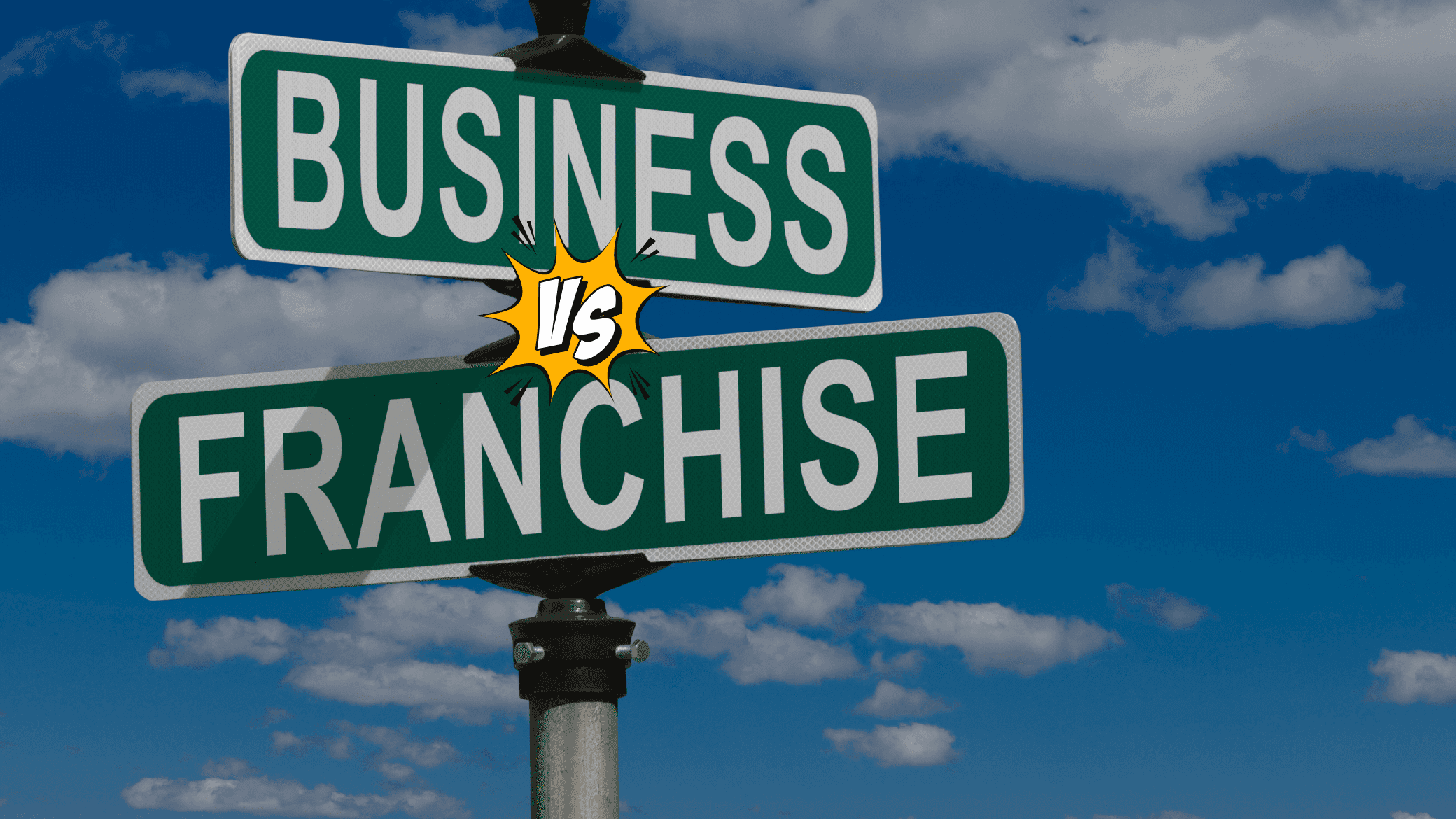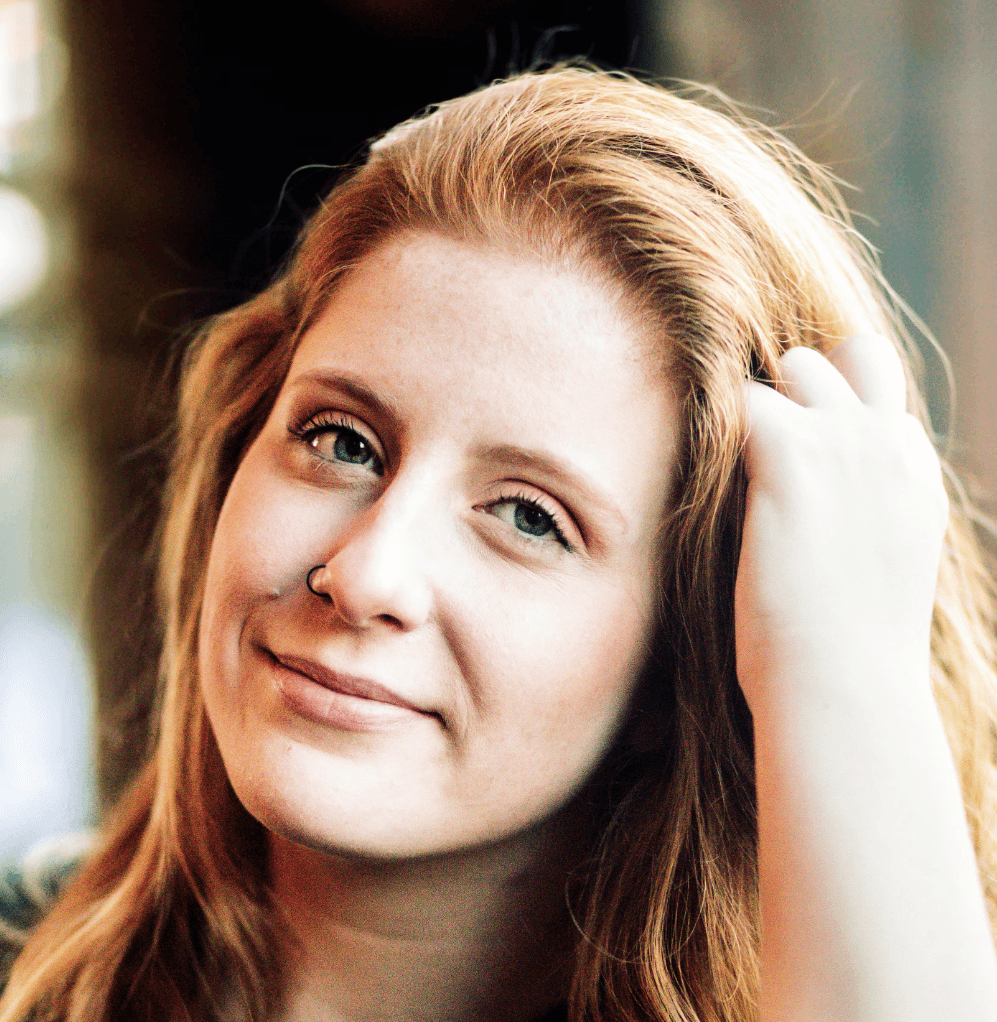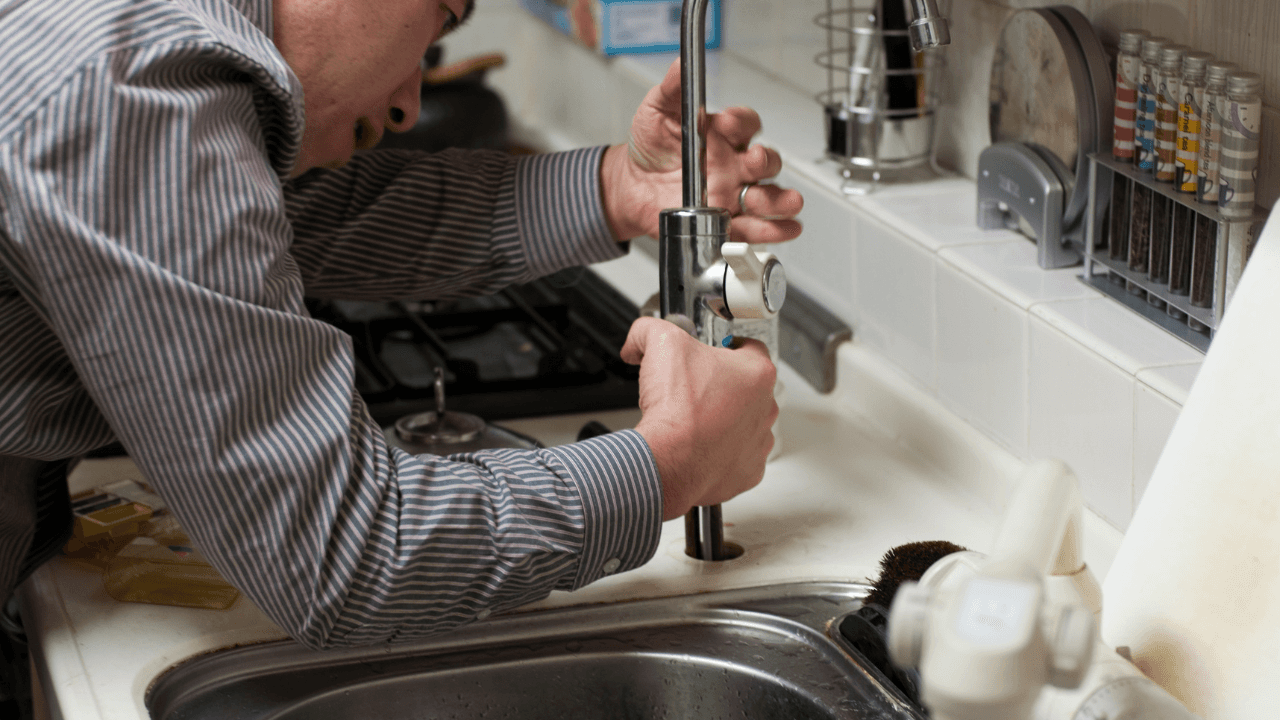Franchise vs. Starting Your Own Business: Which is Easier?
Franchise vs. Starting Your Own Business: Which is Easier?



Franchise vs. Starting Your Own Business
Franchise vs. Starting Your Own Business
Starting a business is one of the most exciting—and daunting—decisions you’ll ever make. But before you dive in, you’re probably wondering: should I buy a franchise or start my own business from scratch? The answer depends on your goals, resources, and appetite for risk. This guide will help break it all down so you can decide what’s easier for you.
Oh, and if you're on the hunt for more ideas, strategies, and tips to kickstart your entrepreneurial journey, check out foundernoon.com—your go-to for free business ideas and actionable insights.
Starting a business is one of the most exciting—and daunting—decisions you’ll ever make. But before you dive in, you’re probably wondering: should I buy a franchise or start my own business from scratch? The answer depends on your goals, resources, and appetite for risk. This guide will help break it all down so you can decide what’s easier for you.
Oh, and if you're on the hunt for more ideas, strategies, and tips to kickstart your entrepreneurial journey, check out foundernoon.com—your go-to for free business ideas and actionable insights.
Contents
Boost your business visibility to thousands of engaged readers!
Get Featured on 100+ pages across the FounderNoon website.
One month stretch ⇢ $100
Three-month stretch ⇢ $250
Boost your business visibility to thousands of engaged readers!
Get Featured on 100+ pages across the FounderNoon website.
One month stretch ⇢ $100
Three-month stretch ⇢ $250
Contents
What is a Franchise?
What is a Franchise?
A franchise is basically a business-in-a-box. Instead of building something from the ground up, you buy into an already established brand. The business model, products, and marketing are already set up—you just need to run the day-to-day.
The Basics of a Franchise
When you buy a franchise, you get access to:
Brand recognition: People already know the name and trust the product.
A proven business model: The franchisor has worked out the kinks. You follow their process.
Support and training: Most franchises come with built-in support. They train you on how to run the business and might even help with marketing.
But before you jump in, remember you have to pay for all this. Most franchises charge initial fees and ongoing royalties (a percentage of your revenue) to keep the brand running smoothly.
A franchise is basically a business-in-a-box. Instead of building something from the ground up, you buy into an already established brand. The business model, products, and marketing are already set up—you just need to run the day-to-day.
The Basics of a Franchise
When you buy a franchise, you get access to:
Brand recognition: People already know the name and trust the product.
A proven business model: The franchisor has worked out the kinks. You follow their process.
Support and training: Most franchises come with built-in support. They train you on how to run the business and might even help with marketing.
But before you jump in, remember you have to pay for all this. Most franchises charge initial fees and ongoing royalties (a percentage of your revenue) to keep the brand running smoothly.
What Does It Mean to Start Your Own Business?
What Does It Mean to Start Your Own Business?
When you start your own business, you’re building from scratch. You get to call the shots on everything—what you sell, how you brand it, and how you run the day-to-day operations. Sounds empowering, right?
The DIY Approach
Starting your own business means:
Full creative control: You’re the boss, and you decide every detail, from your logo to the customer experience.
Flexibility to change and grow: Want to pivot? You can. Want to double down on a new trend? Do it. There’s no one to answer to but yourself.
Building something uniquely yours: Your business is 100% your creation. It’s rewarding but takes a lot of work to build from the ground up.
The downside? There’s no established brand behind you. That means you’ll have to figure out marketing, operations, and customer acquisition on your own. And that takes time and money.
When you start your own business, you’re building from scratch. You get to call the shots on everything—what you sell, how you brand it, and how you run the day-to-day operations. Sounds empowering, right?
The DIY Approach
Starting your own business means:
Full creative control: You’re the boss, and you decide every detail, from your logo to the customer experience.
Flexibility to change and grow: Want to pivot? You can. Want to double down on a new trend? Do it. There’s no one to answer to but yourself.
Building something uniquely yours: Your business is 100% your creation. It’s rewarding but takes a lot of work to build from the ground up.
The downside? There’s no established brand behind you. That means you’ll have to figure out marketing, operations, and customer acquisition on your own. And that takes time and money.
Pros and Cons of Franchising
Pros and Cons of Franchising
Pros of Franchising
Established brand recognition
One of the biggest perks of a franchise is the instant brand recognition. Customers already know the name, and they know what to expect. You won’t spend months (or years) trying to convince people to trust your business.Proven business model
Franchisors have already figured out what works and what doesn’t. When you buy a franchise, you’re buying a system that’s been tested. Less guesswork means fewer mistakes on your end.Training and support
Most franchises come with built-in training and support. The franchisor will show you how to run the business, handle operations, and even market the brand. This makes the learning curve much easier to manage.Lower risk
Franchises typically have a higher success rate than independent businesses because the business model is already proven. If you follow the franchisor’s system, your chances of success are higher than if you go solo.
Cons of Franchising
Initial investment
Buying into a franchise isn’t cheap. Most franchises charge significant upfront fees. Depending on the franchise, these can range from a few thousand dollars to hundreds of thousands. Plus, there are ongoing royalties (a percentage of your earnings) that you’ll need to pay.Limited control
While the franchise model works for some, you might feel restricted. The franchisor decides how you market, what you sell, and even how your location looks. If you’re the creative type who wants to put your own spin on things, this can feel limiting.Ongoing royalties
As a franchisee, you’ll have to pay a percentage of your profits to the franchisor every month. This can feel like a constant drain, especially if you’re not making a lot of money in the beginning.
Pros of Franchising
Established brand recognition
One of the biggest perks of a franchise is the instant brand recognition. Customers already know the name, and they know what to expect. You won’t spend months (or years) trying to convince people to trust your business.Proven business model
Franchisors have already figured out what works and what doesn’t. When you buy a franchise, you’re buying a system that’s been tested. Less guesswork means fewer mistakes on your end.Training and support
Most franchises come with built-in training and support. The franchisor will show you how to run the business, handle operations, and even market the brand. This makes the learning curve much easier to manage.Lower risk
Franchises typically have a higher success rate than independent businesses because the business model is already proven. If you follow the franchisor’s system, your chances of success are higher than if you go solo.
Cons of Franchising
Initial investment
Buying into a franchise isn’t cheap. Most franchises charge significant upfront fees. Depending on the franchise, these can range from a few thousand dollars to hundreds of thousands. Plus, there are ongoing royalties (a percentage of your earnings) that you’ll need to pay.Limited control
While the franchise model works for some, you might feel restricted. The franchisor decides how you market, what you sell, and even how your location looks. If you’re the creative type who wants to put your own spin on things, this can feel limiting.Ongoing royalties
As a franchisee, you’ll have to pay a percentage of your profits to the franchisor every month. This can feel like a constant drain, especially if you’re not making a lot of money in the beginning.
Pros and Cons of Starting Your Own Business
Pros and Cons of Starting Your Own Business
Pros of Starting Your Own Business
Full control and creative freedom
When you start your own business, it’s all you. You decide everything, from the product to the marketing. Want to pivot halfway through? No problem. You’ve got the freedom to try new things and take the business in any direction you choose.Flexibility to grow on your terms
With a franchise, you’re locked into the franchisor’s system. But with your own business, you’re free to expand however you want. Want to launch a new product line? Go for it. Want to target a niche market? Done. You’re in control.Building something from scratch
There’s something incredibly satisfying about starting a business from nothing and seeing it grow. It’s harder, but it’s 100% yours.
Cons of Starting Your Own Business
Higher risk
With no proven business model to follow, starting your own business can be risky. You’ll make mistakes, and those mistakes can cost you—sometimes a lot. According to statistics, many small businesses don’t survive their first five years.Time-consuming
Starting from scratch means you’ll spend a lot of time getting everything in place. From creating a brand to figuring out your marketing strategy, it can feel like there’s never enough time in the day. And you won’t have the same level of support as you would with a franchise.Building a customer base from zero
With a franchise, you get customers who already trust the brand. But when you start your own business, you’ll need to convince people to give your new brand a shot. This can take time and a lot of effort.
Pros of Starting Your Own Business
Full control and creative freedom
When you start your own business, it’s all you. You decide everything, from the product to the marketing. Want to pivot halfway through? No problem. You’ve got the freedom to try new things and take the business in any direction you choose.Flexibility to grow on your terms
With a franchise, you’re locked into the franchisor’s system. But with your own business, you’re free to expand however you want. Want to launch a new product line? Go for it. Want to target a niche market? Done. You’re in control.Building something from scratch
There’s something incredibly satisfying about starting a business from nothing and seeing it grow. It’s harder, but it’s 100% yours.
Cons of Starting Your Own Business
Higher risk
With no proven business model to follow, starting your own business can be risky. You’ll make mistakes, and those mistakes can cost you—sometimes a lot. According to statistics, many small businesses don’t survive their first five years.Time-consuming
Starting from scratch means you’ll spend a lot of time getting everything in place. From creating a brand to figuring out your marketing strategy, it can feel like there’s never enough time in the day. And you won’t have the same level of support as you would with a franchise.Building a customer base from zero
With a franchise, you get customers who already trust the brand. But when you start your own business, you’ll need to convince people to give your new brand a shot. This can take time and a lot of effort.

















2,678+ people enjoy it
➤ Every week, we dig up stories of how regular people started and grew their businesses—
➤ Plus the marketing hacks that won them customers.
➤ Then, we share those insights with you.
➤ Every week, we dig up stories of how regular people started and grew their businesses—
➤ Plus the marketing hacks that won them customers.
➤ Then, we share those insights with you.
Financial Considerations
Financial Considerations
Franchise Costs vs. Startup Costs
Franchises require an upfront investment. The exact amount depends on the brand you’re buying into, but expect to pay franchise fees, plus startup costs like renting a location, hiring staff, and stocking inventory. On top of that, you’ll be paying royalties every month.
Starting your own business can be less expensive—or more expensive—depending on what kind of business you’re launching. The costs vary, but you’ll need to budget for things like branding, marketing, and equipment. You won’t have to pay ongoing royalties, but the initial cash outlay can be just as high, especially if you’re building something with physical products or services.
Franchise Costs vs. Startup Costs
Franchises require an upfront investment. The exact amount depends on the brand you’re buying into, but expect to pay franchise fees, plus startup costs like renting a location, hiring staff, and stocking inventory. On top of that, you’ll be paying royalties every month.
Starting your own business can be less expensive—or more expensive—depending on what kind of business you’re launching. The costs vary, but you’ll need to budget for things like branding, marketing, and equipment. You won’t have to pay ongoing royalties, but the initial cash outlay can be just as high, especially if you’re building something with physical products or services.
Which is Easier?
Which is Easier?
When it comes to “franchise vs starting your own business,” it really depends on what you value more: control or structure. If you want a proven system with built-in support, a franchise is probably the easier route. You’ll get the training and guidance you need, but you’ll have to give up some creative freedom and pay those pesky royalties.
On the flip side, if you crave independence and full control over every aspect of your business, starting from scratch might be more rewarding. Yes, it’s riskier, and yes, it’s harder, but the potential rewards (both emotional and financial) are greater.
When it comes to “franchise vs starting your own business,” it really depends on what you value more: control or structure. If you want a proven system with built-in support, a franchise is probably the easier route. You’ll get the training and guidance you need, but you’ll have to give up some creative freedom and pay those pesky royalties.
On the flip side, if you crave independence and full control over every aspect of your business, starting from scratch might be more rewarding. Yes, it’s riskier, and yes, it’s harder, but the potential rewards (both emotional and financial) are greater.
Who Should Choose Franchising?
Who Should Choose Franchising?
Franchising is best for people who want a lower-risk way to get into business. If you like the idea of working with a pre-established system and don’t mind following someone else’s rules, franchising can be a great option. You’ll benefit from the brand recognition and proven systems that can help you succeed faster.
Franchising is best for people who want a lower-risk way to get into business. If you like the idea of working with a pre-established system and don’t mind following someone else’s rules, franchising can be a great option. You’ll benefit from the brand recognition and proven systems that can help you succeed faster.
Who Should Start Their Own Business?
Who Should Start Their Own Business?
If you’re someone who values freedom and creativity over safety nets, starting your own business is the way to go. It’s ideal for entrepreneurs who want to take risks, build their own brand, and aren’t afraid to put in the hard work to make it happen.
If you’re someone who values freedom and creativity over safety nets, starting your own business is the way to go. It’s ideal for entrepreneurs who want to take risks, build their own brand, and aren’t afraid to put in the hard work to make it happen.
Conclusion
Conclusion
There’s no one-size-fits-all answer to the question of whether a franchise or starting your own business is easier. It comes down to your personal goals, your tolerance for risk, and how much control you want over your business.
And remember, if you’re still weighing your options or need inspiration, foundernoon.com has got you covered with business ideas, tips, and strategies to help you get started on the right foot—whether you choose a franchise or decide to go solo.
Do me a favor and pass this on to a friend or share on X/reddit? It'll take just 20 seconds—this one took me about 7 hours to write 🫠
P.S. I’ve got a weekly newsletter where I share stories about founders who have started successful online businesses, growth strategies, and tips to start/grow your own business. I would love for you to join here
There’s no one-size-fits-all answer to the question of whether a franchise or starting your own business is easier. It comes down to your personal goals, your tolerance for risk, and how much control you want over your business.
And remember, if you’re still weighing your options or need inspiration, foundernoon.com has got you covered with business ideas, tips, and strategies to help you get started on the right foot—whether you choose a franchise or decide to go solo.
Do me a favor and pass this on to a friend or share on X/reddit? It'll take just 20 seconds—this one took me about 7 hours to write 🫠
P.S. I’ve got a weekly newsletter where I share stories about founders who have started successful online businesses, growth strategies, and tips to start/grow your own business. I would love for you to join here






